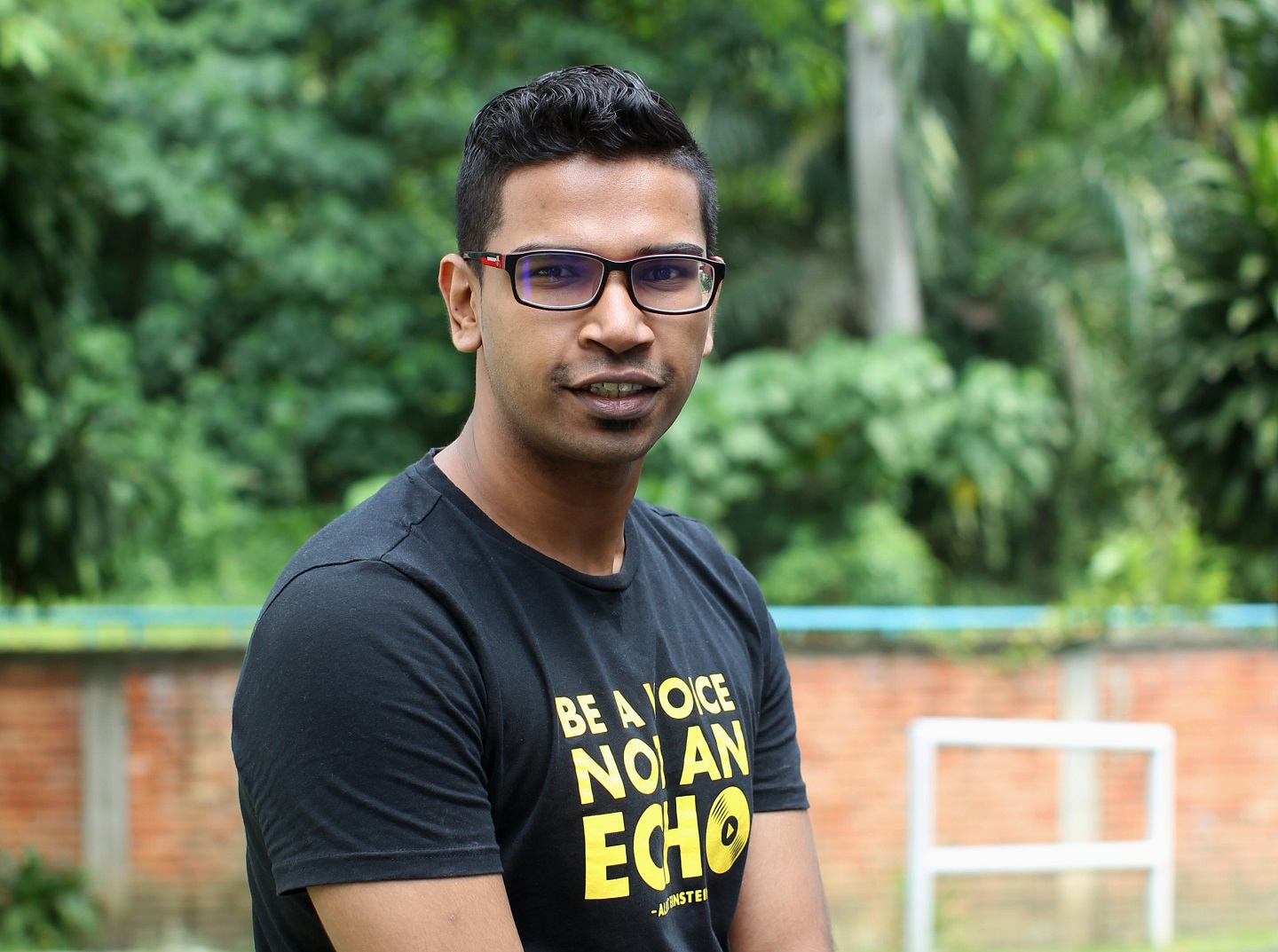
Co-founder of Nation Building School, Marques Jeevan. (Photo: Mohd Izwan/The Edge)
Much like nature, Marques Jeevan abhors a vacuum. He and partner Zaim Mohzani observed a lack of focused youth development initiatives and co-founded Nation Building School in August 2015, aimed at matching skills and interests with relevant opportunities.
“I wanted to become an engineer because I’m a solutions provider. I enjoy looking at ways to solve issues and maintain the sustainability of those solutions,” says Marques, who graduated from University College Sedaya International in Kuala Lumpur with a degree in chemical engineering.
“Church activities exposed me to social work at a relatively early age. It allowed me to grow in empathy and carry it forward into the workforce. I didn’t want to just earn money, I wanted to be an agent of change or contribute to the betterment of society. I believe in dealing with problems while they are still manageable — dismissing pressing issues only leads to them snowballing. I saw youths who had passion but little knowledge of avenues to explore them in and wanted to address that.”
Nation Building School is a platform that focuses on three broad components. Leadership programmes develop personal, professional and civic growth; forums bring young people together in dialogues on life, leadership and nation-building; and workshops teach a variety of life skills, from public speaking and networking to project management, in compact three-hour sessions.
On the whole, it aims to pair interest and potential in pursuits ranging from self-improvement, social work, business and science to music, arts and sports with opportunities that contribute to growth in those areas. It also brings in leaders, companies and non-profit organisations that can steer enthusiasts in the right direction, sometimes resulting in collaborations, internships or career opportunities. The target demographic is those aged between 18 and 30 but public workshops attract audiences from age 15 to 60. It is run entirely by volunteers and all, including Marques and Zaim, hold day jobs.
“We reached out to young professionals and vocational practitioners. They all had something to offer and were keen to give back to their communities,” continues the KL-born-and-bred Marques. “We’re refining ways to tap into that and trying to democratise access to opportunities that might otherwise be limited to certain members of society.”

One such example is the VIP classroom sessions in which an industry captain candidly tackles a theme, often centred on life lessons. Datuk Seri Idris Jala conducted the inaugural session, taking questions about hardship and success. “You look up to these guys and it’s very rare that you hear them discuss deeply personal issues,” says Marques.
“Chatham House Rule applies. No cameras or recordings are allowed and participants are at liberty to ask anything they like. It can get very personal and emotional. It shows the participants that these guys are not superhumans, are no different from them; they just did something different. Take their secrets or methods, apply them and work your way up.”
A recent artificial intelligence (AI) workshop attracted the expected mix of students and enthusiastic software developers, as well as an older housewife. Marques discovered she was driven by curiosity; she hoped AI would ease childcare and housework but also did not want to someday report to a robot. He took her feedback to heart — the better organisers understand what motivates participants, the better they can contextualise the presentation of topics.
“AI is very relevant to our future and I think everyone can find their own applications and benefits of it,” he explains. “This is why although we typically cater to youths, we don’t close our doors to anyone who sees value in what we do.”
Said value must be evident, for Nation Building School has successfully partnered over 100 organisations and companies in its few years of operation. The list includes the British High Commission Kuala Lumpur, Performance Management & Delivery Unit (Pemandu), G25 Malaysia and Leaderonomics as well as Coca-Cola, Microsoft and the United Nations.
This is why although we typically cater to youths, we don’t close our doors to anyone who sees value in what we do
Over 3,000 participants have taken part in its various programmes. While its focus is predominantly on the Klang Valley, with youths viewing the capital city as an opportunity hub and gravitating here, the volunteers have conducted outreach programmes in rural Malaysia but are limited by capacity, funding and logistical capabilities. Marques and Zaim used to fund all initiatives themselves but as the school’s reach grew, the model had to change.
They now charge a nominal fee — the AI workshop was RM25 per person — for workshops to enable students to participate. They also encourage partners to sponsor elements such as venue hire or refreshments in the interest of transparency, turning down cash sponsorships. “We don’t have sufficient funding and are looking to grants and collaborations with ministries and other bodies to sustain our programmes,” says Marques.
In a Utopian scenario, the platform would be institutionalised, perhaps as part of the national youth development plan. “Of course there are organisations out there with youth development on their agendas but we realised there was space to do much more, to combine resources and ideas and get relevant people together and talking to each other,” he continues.
“Too many initiatives are being run independently and could have greater impact if they collaborated with each other. We would love to see this go regional and grow towards the Asean agenda. This is hopefully the first of many steps to create a programme of massive scale with collective impact for youths.”
This article first appeared on Apr 9, 2018 in The Edge Malaysia.


